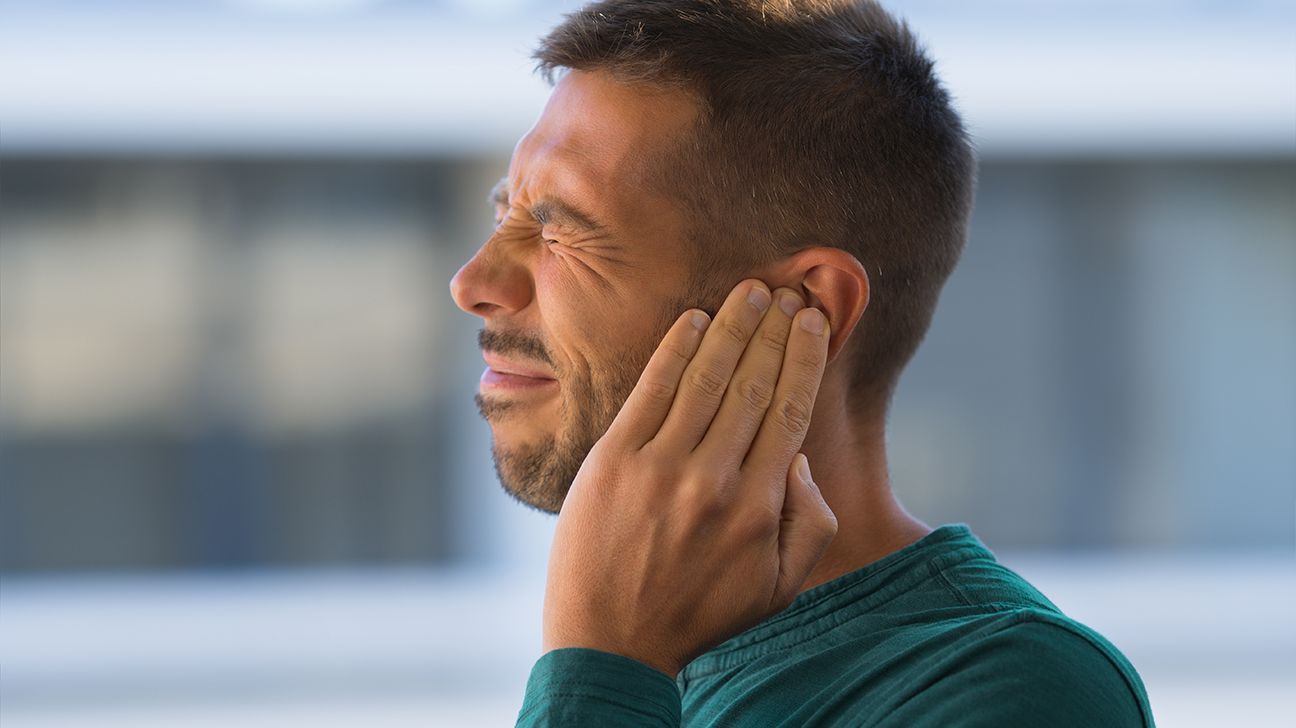Loud noises, stress, and infections are some of the reasons your tinnitus may get worse. Treating any underlying health condition is important to improving tinnitus.

Tinnitus, or a ringing noise in the ears not associated with an external sound, occurs in approximately
If the cause of your tinnitus can be determined, you may be able to eliminate or reduce the sounds you hear. Avoiding potential triggers can also help to reduce discomfort. Loud noises, stress, and alcohol are just some examples of things that may make your tinnitus worse.
Things that
- anxiety and stress
- being around loud noises
- alcohol
- migraine
- lack of sleep
- elevated or decreased blood pressure levels
- allergies
- infections
It’s important to remember that
For those with hearing loss, tinnitus
Even if the cause of your tinnitus is not identifiable, you may be able to reduce symptoms of tinnitus by identifying and avoiding
Often the cause of tinnitus is unknown, but when a
- damage to blood vessels or the inner ear
- use of certain medications
- hearing loss
- neck or head injuries
- an ear infection or extra ear wax
- Meniere disease
- chronic conditions like diabetes, migraine, and lupus
- issues with your jaw joints
- head, neck, or brain tumors
Individuals with tinnitus experience ringing, buzzing, clicking, humming, or whistling sounds in their ears that are not related to external noises.
The sounds associated with tinnitus may be loud or soft. They may be constantly present or come and go over time.
The
- removing excess ear wax from your ear
- mental health counseling (for tinnitus related to anxiety)
- medications (for tinnitus related to a medical condition like high blood pressure)
- sound therapy like hearing aids for those with tinnitus related to hearing loss or tinnitus maskers for people without hearing loss
- behavioral therapy for those having difficulty performing necessary life tasks as a result of their tinnitus
- tinnitus retraining therapy (a combination of therapies such as behavioral therapy, masking, biofeedback, and others)
There’s no specific cure for tinnitus, but it may improve or disappear when any underlying conditions are treated. Even if the cause of your tinnitus is unknown or not able to be addressed, you may be able to improve your tinnitus by adjusting your lifestyle and reducing your stress levels.
Your outlook largely depends on the cause of your tinnitus. Some individuals will experience tinnitus for the rest of their life. On the other hand, if doctors are able to identify the cause of your tinnitus and address it, you may be able to eliminate or diminish the amount of noise you hear.
Unfortunately, for many people, tinnitus will not go away. But you can learn to habituate to it so that it often becomes less noticeable.
What is the best way to deal with tinnitus?
If you’re experiencing tinnitus, it’s important to work with your doctor to make sure that any underlying health issues are being treated. Depending on the cause of your tinnitus, anxiety and blood pressure medications may help. Hearing aids may also be recommended.
What causes tinnitus to get louder?
Tinnitus
Can you live a long life with tinnitus?
The reason for your tinnitus may impact how long you live. High blood pressure and some other potential causes of tinnitus can be associated with shortened lifespans.
If you have tinnitus, you may hear constant or periodic buzzing, humming, clicking, or roaring noises in your ears unrelated to what’s happening in the world around you. Prolonged exposure to loud noises, stress, and allergies are just some of the things that can make tinnitus louder.
In some cases, your doctor can help you to determine the cause of your tinnitus. Addressing any underlying health issues may improve or even eliminate the tinnitus you experience.
